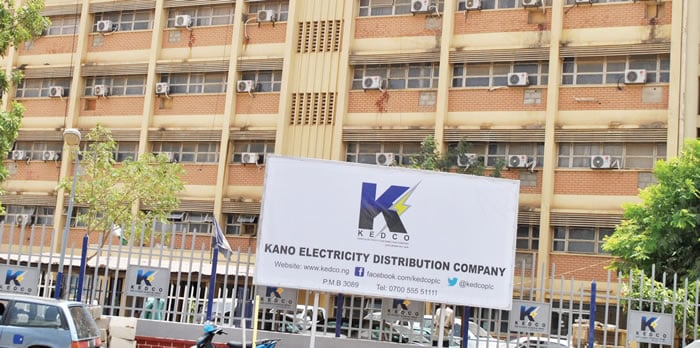The governments of Kano, Katsina, and Jigawa States have agreed to form a partnership on the proposed Tri-state Electricity Market and jointly acquire equity stakes in Future Energies Africa (FEA) — the core investor in the Kano Electricity Distribution Company (KEDCO).
This decision followed a high-level electrification summit held in Marrakech, Morocco, between Friday, October 16, and Sunday, October 19, 2025, where the governors of the three states — Abba Kabir Yusuf of Kano, Dikko Umar Radda of Katsina, and Umar Namadi of Jigawa — met with top executives of FEA to discuss regional energy collaboration.
The development was disclosed in a statement issued on Monday by Sani Bala Sani, Head of the Corporate Communications Unit of KEDCO,
According to the statement, the meeting was attended by several senior government officials, including the Speakers of Katsina and Jigawa Houses of Assembly, Nasir Yahaya Saif and Haruna Dangyatin; the Commissioners for Power in Kano and Jigawa, Dr. Gaddafi Sani Shehu and Dr. Surajo Alhaji Musa; and the Special Adviser on Power to the Katsina Governor, Dr. Hafiz Ibrahim Ahmed.
Also in attendance were the Attorney General of Jigawa State, Hon. Bello Abubakar, and Commissioner Dafe Akpeneye from the Nigerian Electricity Regulatory Commission (NERC), representing the federal regulatory interest in the discussions.
The host company, Future Energies Africa, was represented by its Chairman, Alhaji Najib Koguna, alongside key executives Ahmad Zakari, Alhaji Daura Ahmed, and Engr. Yusuf Yahaya.
Other strategic participants included the Chairman of KEDCO, Alhaji Adamu Gumel; the Managing Director, Dr. Abubakar Jimeta; and energy and finance experts from DLA Piper, Boston Consulting Group (BCG), and BlackAion Capital, who provided technical and investment guidance.
At the end of the summit, all parties agreed that Kano and Katsina States would join Jigawa State, which had earlier taken an equity position in FEA, to strengthen KEDCO’s governance and operational structure. The move, they said, would help ensure that the three states jointly influence the strategic direction of the electricity distribution company.
The meeting also resolved to establish an electrification fund with an initial capitalisation target of ₦50 billion, to accelerate energy access and improve supply across the three states. The fund will focus on embedded generation, renewable energy projects, solar home systems, grid extension, and mini-grid development in rural and semi-urban communities.
According to the communiqué, the initiative is the first of its kind in Northern Nigeria and represents a major milestone in regional energy collaboration under the Electricity Act 2023, which allows states to generate, distribute, and regulate electricity within their territories.
The states also agreed to work together under the Act to create a joint regulatory framework for the tri-state market, where harmonised policies and mutual oversight can encourage private sector investment and ensure stable power supply across the region.
Additionally, the meeting resolved that the three states, in collaboration with KEDCO and Future Energies Africa, will focus on reducing aggregate technical, commercial, and collection (ATC&C) losses, particularly among residential consumers, to improve revenue efficiency and power distribution.
To maintain progress and accountability, the statement said that representatives of the three states and FEA will hold quarterly review sessions and convene an annual international retreat to evaluate performance, assess funding utilisation, and refine strategies for expanding the tri-state electricity market.
The partnership is seen as a critical step toward enhancing power stability in Nigeria’s North-West region, where inadequate electricity supply has long hampered industrial growth, small business operations, and rural development.
Energy analysts describe the move as a progressive model for subnational cooperation, noting that the involvement of state governments in equity ownership could foster greater transparency and community participation in the power sector.
Observers believe that the new tri-state electricity arrangement could serve as a pilot for other regional collaborations across Nigeria, aligning with the federal government’s decentralisation efforts to make power generation and distribution more efficient and closer to the people.
